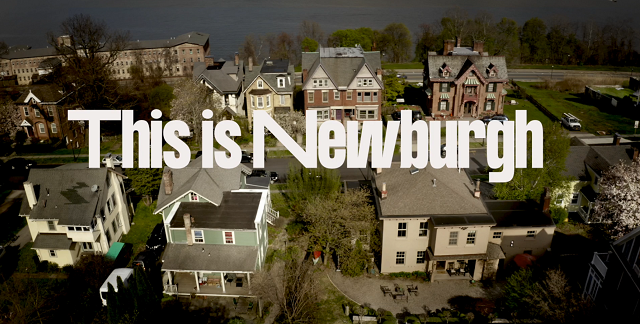
The weekly link roundup is a collection of links related to Newburgh, revitalization, urban planning and anything else that might inspire change or create dialogue. Photo by HB.
How Cities Can Fund the Future [CL]
Redefining Retail in Newburgh [ROO]
Challenging the Cappuccino City: Part 3: Cultural Displacement [CC]
Add your own photos depicting city life to the Newburgh Restoration flickr pool to be used on the blog, or email me. **Flickr users please do not forget to remove disabling of downloading of pictures. Otherwise, I can’t use them** Please do not take photos for your own use without consulting the photographer.







-Cities have been “borrowing” revenue from the future for decades. As for the corporate taxes, they have never accounted much toward government spending…federal tax receipts overall have never exceeded 20% of gdp (hausers law). Point being, government spending dictates taxes, not the other way around. The author is presenting a false narrative as cities and states were initially self dependent. As for his three ways…How is a “social impact fund” not a tax by another name? Hasn’t it been “publicly owned and privately managed” entities accounting for the municipal deficits? The referenda process? San Antonio ranks as having one of the nation’s highest municipal debt per capita toward “generating (its) hundreds of millions of dollars…”.
-Newburgh…affordable is relative…redefining urban renewal.
-“Demand more” from your government? How about from oneself. Just what is the author’s argument aside from claiming the decades’ old “commonly held beliefs” worked, but didn’t work? One’s dependence is one other’s control. The author seems to suggest we should double down. Not.
fyi, more city funding, yeah right…1) https://fred.stlouisfed.org/series/W070RC1A027NBEA
2) https://fred.stlouisfed.org/series/A054RE1A156NBEA
3) https://fred.stlouisfed.org/series/FYFRGDA188S
Apparently some who sit at the big table in Newburgh think the city can’t “fund the future” without gifting commercial PILOTs. Look for Newburgh to pimp future “live, work, play” endeavors as economic development. In short, if the city can’t bring taxes to the people, bring people to the taxes. ‘Curious…will future projects be exempt from the estimated 6% annual increases in sewer rates as well? Or will the city continue to “reallocate available funds” from its Contingency-Emergency fund to cover the gaps? Before Beacon, Kingston, etc. inked larger projects they grew their small business districts. The people moved in, more small biz, wash, rinse, repeat. Now, they’re building condos and hotels to the point they have to have building moratoriums on occasion. Newburgh wants to leap frog that approach because it needs the quick fix, hoping to shrug the social experiment off its back. So be it. Hopefully, “alembic math” will not be the substitute habit.
So the “rateables” choir seems willing to make concessions as long as they provide some window dressing to
the blight up the street…”tax abatements are necessary for new biz”. Any new muni bond issues will need to be collateralized. Empty buildings will not suffice, nor will non-tax paying developments, so property taxes it is as there is no limit on it. A property tax bill can grow as high as the going annual rental rate before the property is worthless in the eyes of creditors. Municipalities are essentially writing checks against existing homes and businesses. In addition to tax abatements, down side risk for developers can be further hedged by tax codes that book building depreciation as a return on capital should things go south. https://www.american-apartment-owners-association.org/property-management/rent-magazine-articles/depreciation-recapture-avoid-gotcha-part-selling-real-estate/. “Affordability” will lessen as the causal process runs from credit, aka subsidies, to property prices. As property prices rise so do taxes (that’s how infrastructure gets fixed), so future development will require more subsidies as an offset. ‘Don’t think so? So municipalities are now subsidizing producers because subsidizing consumer demand has been a success? Anyway, stop the process and demand will drop. I doubt prices will drop as they did ten years ago, we’ll see ghost towns before muni assessors lower values. So if tax abatements are the new norm, perhaps they should be pegged to a future property’s real rental income rather than to a legacy tax incentive based on a bank or muni assessor’s valuation (a speculative asset). Credibility vouchers aside, if you offer cheap credit to someone they’re going to take it. Remember, that’s the seed corn corn you’re tapping into in the interim while you’re planting the hopeium.
Just because…https://www.youtube.com/watch?v=UoXJmbFhw4E